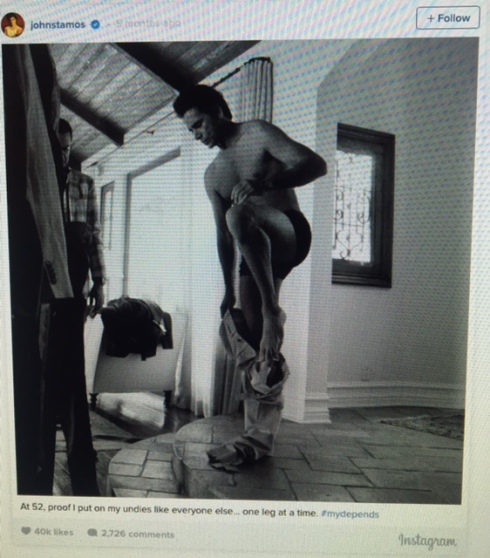Calvin Reid makes insightful remarks about the role e-technology and social media are playing in publishing in “SXSW 2012: New Publishing Models and the Rise of the Referral Economy.” If you’re new to publishing and looking to make your mark on the industry and find readers, I’d highly encourage you to read the entire article. To his point on “curating,” here’s some remarks of his that you might find especially helpful:
- “Altounian said he’s targeting a demographic under the age of 40 that wants to read on an array of devices anytime they want and they don’t want to pay much, if anything, for the content they read on them. … Altounian was making the point that, at least for emerging artists, getting their content in front of readers through traditional publishers is an uphill battle that doesn’t work for everyone; that his goal is to build a list of self-branded artists (using social media tools) and by offering some free content now, and some for-pay content later when the freebie-oriented audiences for these artists reaches critical mass and wants more of their stuff.”
- “Certainly one of the most intellectually vivid panels was Curators or the Curated, a panel examining the phenomenon of content sharing—essentially the practice of any and everyone linking to content and sending it out to followers and friends around the web—and what that means to publishers, creators and the curators themselves. … In theory curators bring attention to content and drive traffic to the original site; in practice some curators are having more impact than the publications they curate from. And its generated a debate about the practice and what it means—and of course how to monetize it.”
- “He also rejected some of the anti-advertising curatorial comments, noting that business platforms were important and that he had worked for a Minn.-based newspaper that did away with escort ads and the loss of revenue killed the newspaper.”
What I take away from this is the following:
Writers need to start building a platform NOW—as in, even before we’ve written our book, we need to start curating content on our subject matter. This means tweeting, forwarding, and “liking,” other writers’ posts related to our subject and also blogging, tweeting, and writing our own status updates on our subject.
Generate content and don’t be afraid to give it away for free. It’s better to give our writing away for free in the beginning so that we can establish ourselves as authorities on that topic and/or as interesting storytellers. Eventually, people will love you and want to buy your writing—but it might take a lot of giving your work away for free first. Michael Hyatt is a big proponent of giving away free content. Not only does he give away valuable information on his blog, but he also created an ebook that he gives to anyone who subscribes to his blog. Both the blog subscription and the ebook are free.
Don’t be all holier than thou about advertising. Solicit advertising for your blog. I personally would suggest keeping your advertising in line with your brand—and your brand should probably be consistent with how you’d want to be thought of by your friends and parents as well. What I mean is, I personally would rather go hungry than earn money from escort ads. The best ads are going to be ones that relate to your subject matter. So if I’m writing about Greek identity, ads about learning how to play the harmonica aren’t going to be controversial but they won’t be as relevant as ads about learning how to speak Greek.
Humbly consider the rights to your content. Bloggers may quote rather heavily from anything you post—and by heavily, I mean they might use your work entirely and just give you credit via a link. This might be a breach of your copyright, but before you get your knickers in a bunch consider if their promotion of your work might be helping you out with some free advertising. Maybe it’s bringing new readers to your work. …But then again, maybe it’s not. Therefore, always be careful with what sort of content you put on your blog. Sure, someone could pirate your whole book, but it’s more likely someone will repost a blog entry than your entire book. With that in mind, be prepared that what you publish on your blog might end up elsewhere.
Pay attention to your e-rights. Landing a book contract is about more than just the print rights these days. Make sure your contract expressly states an agreement about electronic and print-on-demand editions.
It feels like writers—and artists of any sort—get a raw deal. We have to give a lot of free content away. Professionals in other industries don’t seem to have to do this to the same extent. Lawyers may work an occasional pro bono case, but they’re not expected to work for free before making it big. Doctors may do Doctors Without Borders to give back and help people, but this is a personal choice they make. I suppose in some ways artists giving away their work—and having it stolen from them in the case of extreme curating—is an internship of sorts, but the difference is that artists are expected to intern their entire lives or at least until they hit it big.
Therefore, I’d encourage all artists to be savvy.
Yes, you might feel pressured to build your platform and give away content for free, but make sure you’re getting something in return for your investment.
Don’t let your platform overtake your writing. Your platform is a means to an end—your book project.
Use the system. There’s nothing wrong with giving away content for free. There’s nothing wrong with soliciting ads. There’s nothing wrong with social media. Don’t let anyone or any platform rule over you. Keep your goals in perspective and use the system to your advantage. Find your target audience, make connections, earn money, promote your projects.
You can find me not only here on this blog, but also on Twitter, Pinterest, and Google+.
Tags: advertising, blogging, Brian Altounian, Calvin Reid, content, contract, curate, e-rights, economy, free, Google+, Greek, Greek identity, Greek language, Michael Hyatt, monetize, Pinterest, platform, print on demand, promotion, publishing, referral economy, social media, SWXW, traffic, Twitter, writer


















